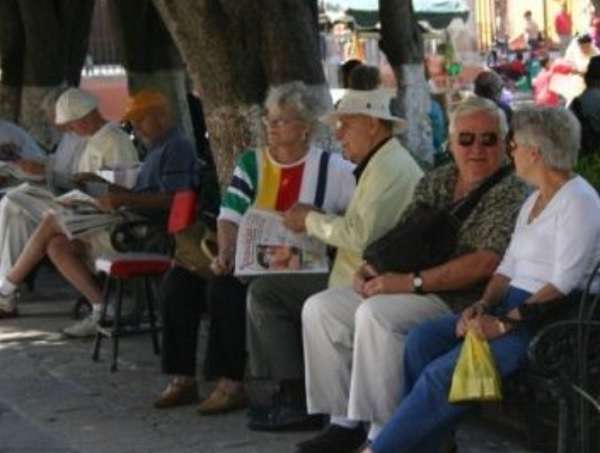Why foreigners first came to town is vastly different than why we do now. As is the foreign community’s impact on the economy, charities, and women.
Earlier expats came to San Miguel de Allende because it was off the beaten path, artsy and inexpensive. Earlier immigrants were inclined to adjust to life among Mexicans.
By contrast, the new wave of expats, especially retirees, arrive now with a different mindset. Eager to enjoy an active, comfortable and affordable retirement they came to town precisely because it had a foreign community. Being less likely to learn Spanish, their interactions with Mexicans are both inhibited and often unsought being content to move in separate circles than Mexicans.
The more modern wave of foreigners are busy creating our own theater troupes, lecture series, music festivals and 12 step programs. Golf, bridge, tennis, pickleball and alike fill their day along with philanthropic endeavors recreating aspects of civic life in the US or Canada.

San Miguel de Allende’s foreign community is referred to in the press as the most earnest and self-righteous of the Latin American retirement hot-spots. This caricature of San Miguel de Allende’s foreigners oversimplifies the diversity within the foreign population and the complicated nature of their charitable work.
First off, you’ll have to search far and wide to find any foreigner run charity excited, or even willing, to share audited financials indicating how much of every dollar goes to the their cause. Mexicans are keenly aware of truth-baring adage “Foreigners come here forming charities to line their own pockets.”

Mexicans, understandably, also object to their portrayal as passive recipients of foreign charity. Foreigners and Mexicans have different motivations for claiming credit for their charitable activities. Foreigners present their charitable efforts as proof they have contributed to town in a positive manner. Mexicans, on the other hand, seek to demonstrate that they do not need to rely of foreign philanthropy and that they are capable of tending to their own needs.
These thoughts resulted in the creation of parallel charities divided by language but united in name only, such as the Rotary.
If foreigner-run charities converted San Miguel de Allende’s economy into one partially based on benevolence, we foreigners’ presence also sped the town’s transition to a service economy. In the late 80s and early 90s, as the town eschewed male-dominated industrialization in favor of tourism the labor market increasingly gave preference to female workers.

With the closure of the factory in 1991 the ability to enter the middle class plummeted as female, service employees at a home or a business lack upward mobility.

Employers justified lower wages for women and thus preferred female employees based on the underlying assumption that women provided a secondary household income. This trend, coupled with the ever decreasing number of local “masculine” jobs in factories and farming, effectively feminized the town’s economy.
My advice?
The usual – avoid foreigner-run charities when you arrive in town for at least a year. Too often folks get involved and soon find themselves in positions of leadership that make them keenly aware of financial shenanigans. In frustration they leave town a year later claiming “Mexico is corrupt”. That might could be but they leave having discovered foreigner-run charities definitely are.

You can’t change the economy, even if every foreigner got in sync to try to, we can’t as we aren’t a player in today’s tourism (that spot is reserved for wealthy Mexicans). Instead treat service folks with the respect everyone deserves. For example, I’ve always Hershey kisses and water bottles on hand for any repair or delivery person that enters my home. Chocolate always makes the day shine brighter.

Lastly, respect the power of the feminine in town. There are good reasons images of Jesus’ Mom are every few feet, as without her, the new Catholic faith would have never taken hold as strongly as it did. The new religion and focus on Mary is what makes Mexico’s history and culture more feminine than you’ll find elsewhere.
- By Joseph Toone
- Amazon’s best selling author of the San Miguel de Allende Secrets books.
- Creator of the National Geographic-sponsored Maria Dolls coloring book helping indigenous doll makers.
- Producer of San Miguel de Allende Secrets YouTube channel with over 100 videos and 1,500 views monthly.
- International speaker on the Power of the Feminine in San Miguel de Allende.

